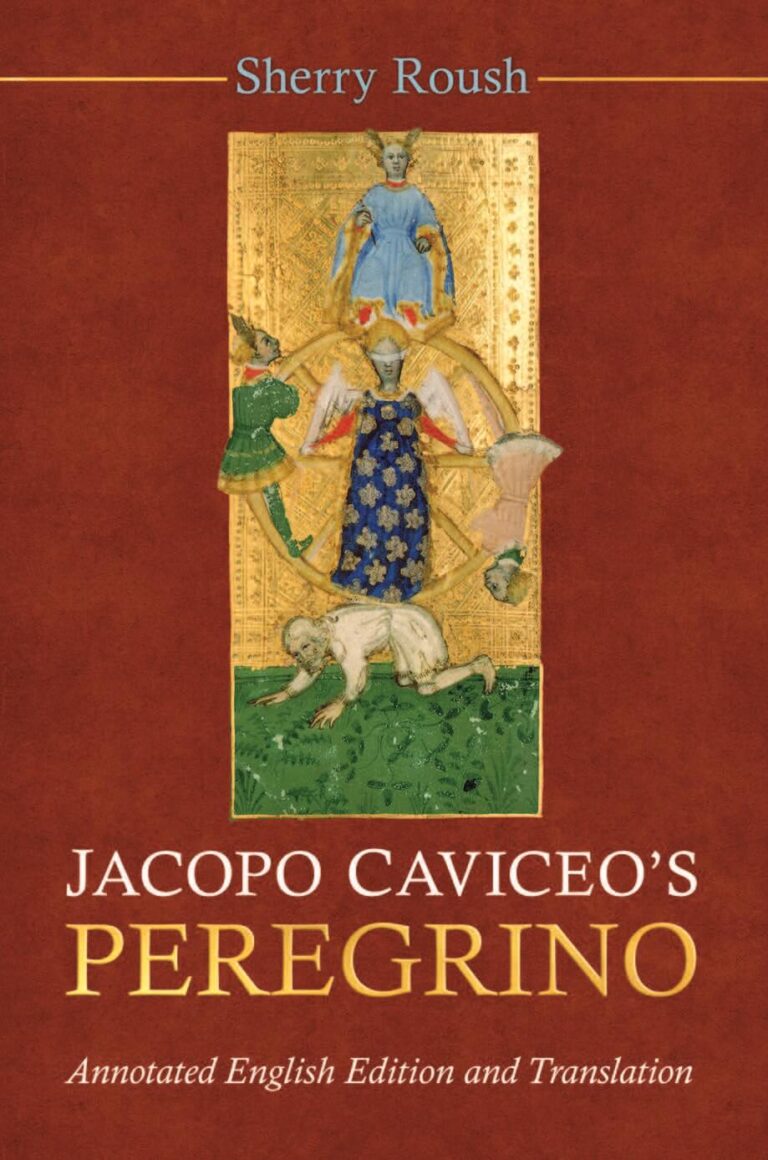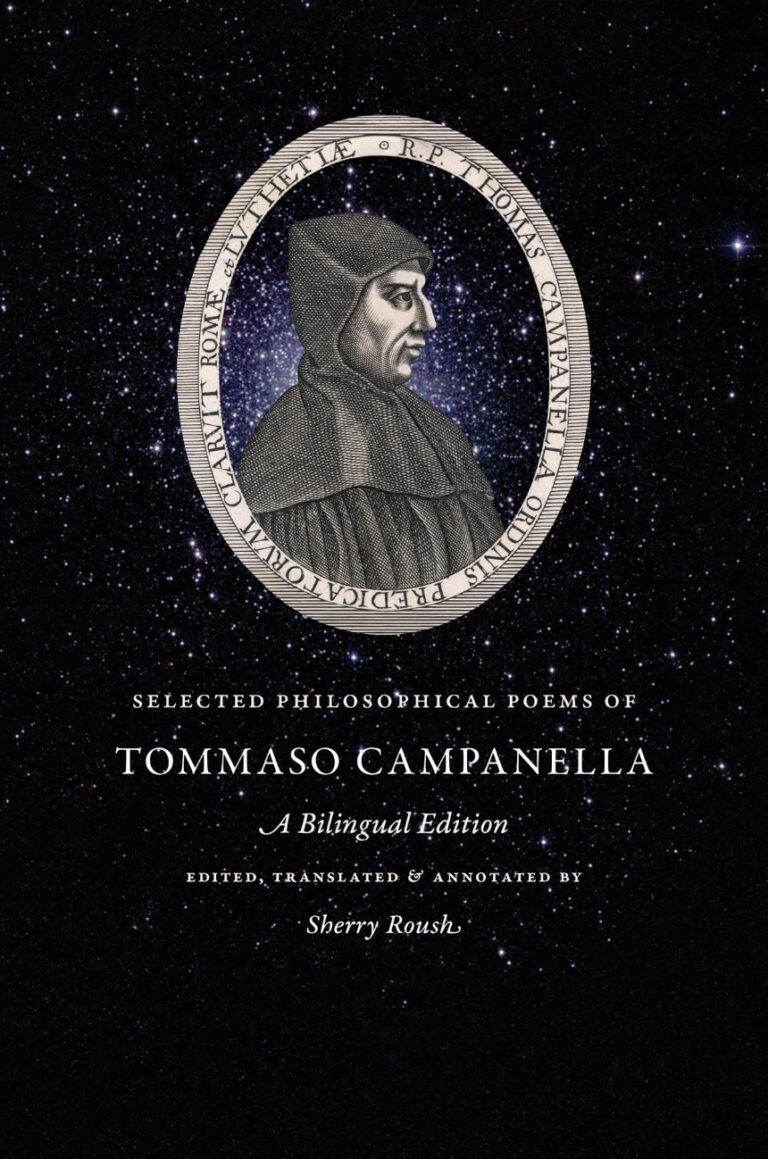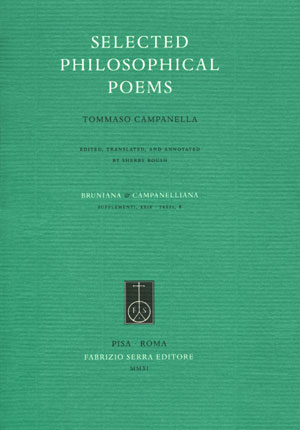
Biography:
Sherry Roush (Ph.D. Yale University, 1999, MA Yale University, 1996, BA University of CA, Santa Cruz, 1992) is a Professor of Italian specializing in medieval and renaissance Italian literature and culture. She is the author of Speaking Spirits: Ventriloquizing the Dead in Renaissance Italy (University of Toronto Press, 2015) and Hermes’ Lyre: Italian Poetic Self-Commentary from Dante to Tommaso Campanella (University of Toronto Press, 2002). She is the translator and editor of Jacopo Caviceo’s Peregrino (University of Toronto Press, 2023), which was awarded a 2020 National Endowment for the Arts grant in Literary Translation and a 2020 National Endowment for the Humanities Faculty Research fellowship. She also translated and edited the Selected Philosophical Poems of Tommaso Campanella in two volumes (The University of Chicago Press and Fabrizio Serra Editore, both 2011) and co-edited The Medieval Marriage Scene: Prudence, Passion, Policy (Arizona State University Press, 2005). Her current project is an English translation and edition of L’istoria di Phileto veronese, a sixteenth-century romance by Lodovico Corfino.
Her scholarly articles have appeared in journals including: Renaissance Quarterly, Italica, MLN: Modern Language Notes, Quaderni d’Italianistica, Viator, and Italian Culture. Particular areas of scholarly interest encompass the commentary and self-commentary tradition, philosophical poetry, the emergence of the novel, hermeneutics, and translation theory and practice.
Dr. Roush is a proud 2017 Middlebury Bread Loafer and has received various grants and awards for her research, including prizes from the Bogliasco Foundation, the Folger Institute, and the Beinecke Rare Books and Manuscripts Library. She has received two awards for outstanding teaching and was named a Commencement Marshal for the College of the Liberal Arts. She has served as an elected member of the Modern Language Association’s Executive Committee for Translation Studies and for the Division of Medieval and Renaissance Italian Literature. She also serves on the MLA committee to select the Lois Roth and Aldo and Jeanne Scaglione Prize for the Translation of a Literary Work.
Publications

Jacopo Caviceo’s Peregrino: Annotated English Edition and Translation
- Author(s): Jacopo Caviceo
- Editor(s): Sherry Roush (and Translator)
- Publication Date: 2023
- Website: https://utorontopress.com/9781487532611/jacopo-caviceos-peregrino/
Jacopo Caviceo’s Peregrino (1508) was a popular Renaissance prose romance in Italy, France, and Spain. Considered the first novel written for women, Peregrino relates the courtship of two young lovers from hostile households who succeed in doing what Romeo and Juliet, among others, could not: reconcile their families and marry without resorting to suicide. Peregrino features cameos of historical celebrities who interact with fictitious characters during their many adventures, which include a Mediterranean pilgrimage, courtly celebrations, funerals, legal trials, and a journey to the Other World. The book presents female agency in psychologically developed characters and contexts and includes allusions to previous literary masterpieces, such as Homer’s epics, Vergil’s Aeneid, and Dante’s Divine Comedy. This edition includes a detailed introduction and a biography of Jacopo Caviceo. Drawing on critical and comparative studies in a broad range of literary interests, the book sheds light on the emergence of the modern novel in the early modern period.

Speaking Spirits: Ventriloquizing the Dead in Renaissance Italy
- Author(s): Sherry Roush
- Publication Date: 2022
- Website: https://utorontopress.com/9781487547585/speaking-spirits/
In classical and early modern rhetoric, to write or speak using the voice of a dead individual is known as eidolopoeia. Whether through ghost stories, journeys to another world, or dream visions, Renaissance writers frequently used this rhetorical device not only to co-opt the authority of their predecessors but in order to express partisan or politically dangerous arguments. In Speaking Spirits, Sherry Roush presents the first systematic study of early modern Italian eidolopoeia. Expanding the study of Renaissance eidolopoeia beyond the well-known cases of the shades in Dante’s Commedia and the spirits of Boccaccio’s De casibus vivorum illustrium, Roush examines many other appearances of famous ghosts – invocations of Boccaccio by Vincenzo Bagli and Jacopo Caviceo, Girolamo Malipiero’s representation of Petrarch in Limbo, and Girolamo Benivieni’s ghostly voice of Pico della Mirandola. Through close readings of these eidolopoetic texts, she illuminates the important role that this rhetoric played in the literary, legal, and political history of Renaissance Italy.

Selected Philosophical Poems of Tommaso Campanella: A Bilingual Edition
- Author(s): Tommaso Campanella, Sherry Roush (Editor and Translator)
- Publication Date: 2011
- Website: https://press.uchicago.edu/ucp/books/book/chicago/S/bo10714670.html
A contemporary of Giordano Bruno and Galileo, Tommaso Campanella (1568–1639) was a controversial philosopher, theologian, astrologer, and poet who was persecuted during the Inquisition and spent much of his adult life imprisoned because of his heterodox views. He is best known today for two works: The City of the Sun, a dialogue inspired by Plato’s Republic, in which he prophesies a vision of a unified, peaceful world governed by a theocratic monarchy; and his well-meaning Defense of Galileo, which may have done Galileo more harm than good because of Campanella’s previous conviction for heresy. But Campanella’s philosophical poems are where his most forceful and undiluted ideas reside. His poetry is where his faith in observable and experimental sciences, his astrological and occult wisdom, his ideas about deism, his anti-Aristotelianism, and his calls for religious and secular reform most put him at odds with both civil and church authorities. For this volume, Sherry Roush has selected Campanella’s best and most idiosyncratic poems, which are masterpieces of sixteenth-century Italian lyrics, displaying a questing mind of great, if unorthodox, brilliance, and showing Campanella’s passionate belief in the intrinsic harmony between the sacred and secular.

Selected Philosophical Poems of Tommaso Campanella. Vol. 2
- Author(s): Tommaso Campanella
- Editor(s): Sherry Roush (and Translator)
With the first volume, this one completes the unabridged Scelta di poesie filosofiche by Tommaso Campanella in a facing-page English translation with critical annotations and the poet’s self-commentary.

The Medieval Marriage Scene: Prudence, Passion, Policy
- Editor(s): Sherry Roush and Cristelle L. Baskins
- Publication Date: 2005
Discusses the latest research on medieval marriage, family, and related topics from the perspectives of literature, history, art history, law, religious studies, and economics, in multiple contexts from London to Valencia to the Levant.

Hermes’ Lyre: Italian Poetic Self-Commentary from Dante to Tommaso Campanella
- Author(s): Sherry Roush
- Publication Date: 2002
- Website: https://utorontopress.com/9780802037121/hermes-lyre/
From the mysterious glosses by ‘EK’ in the poetry of Edmund Spenser, to the self-commentary in Vladimir Nabokov’s Pale Fire, readers of literature have been fascinated by the comments, addenda, and footnotes added by authors to their own work. In this insightful and original work, Sherry Roush investigates poets’ motivations for writing glosses. She argues that self-commentary differs fundamentally from standard commentary, and that it does not necessarily impose an authoritative reading, determine the poem’s significance, or furnish factual autobiographical information. Rather, self-commentary presents an intriguing ulterior poetic dimension and adds to the inherent tension of the text. Roush focuses her study on three pairs of authors, each representing a distinct historical-contextual period: Dante and Boccaccio in the early Italian self-commentative tradition, Lorenzo de’ Medici and Girolamo Benivieni in high Renaissance Florence, and Giordano Bruno and Tommaso Campanella at the turn of the seventeenth century. Through numerous examples, Roush highlights the non-linear development of this mixed genre, and shows how poetic self-commentaries respond to unique literary, historical, and political exigencies, and offer keys to understanding the underlying poetic message. This seminal study will be of particular value to scholars interested in poetry, hermeneutics, autobiography, and Renaissance studies.